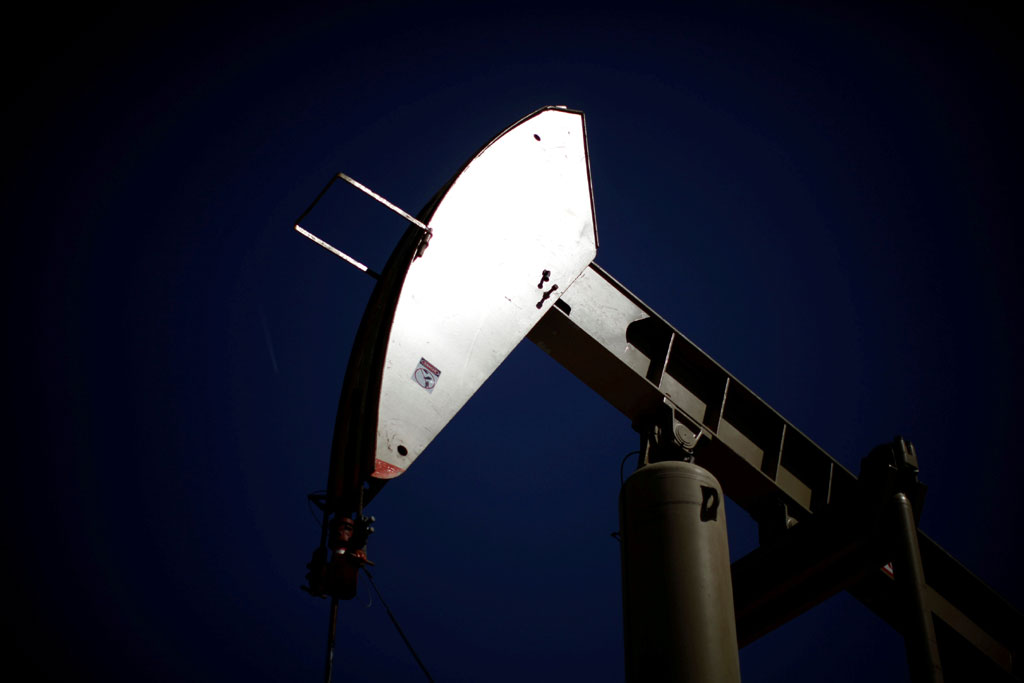 TOKYO: Brent crude on Friday extended sharp gains from the previous day following attacks on two oil tankers in the Gulf of Oman that stoked concerns of reduced crude flows of the commodity through one of the world's key shipping routes.
TOKYO: Brent crude on Friday extended sharp gains from the previous day following attacks on two oil tankers in the Gulf of Oman that stoked concerns of reduced crude flows of the commodity through one of the world's key shipping routes.
The attacks near Iran and the Strait of Hormuz pushed oil prices up as much as 4.5% on Thursday, putting the brakes on a slide in prices in recent weeks over concerns about global demand. U.S. crude
It was the second time in a month tankers have been attacked in the world's most important zone for oil supplies, amid rising tensions between the United States and Iran. Washington quickly blamed Iran for Thursday's attacks, but Tehran denied the allegation.
Brent crude futures were up 23 cents, or 0.4%, at $61.54 a barrel by 0638 GMT, having settled up 2.2% on Thursday. Still, the contract is heading for a weekly fall of nearly 3%, a fourth week of decline.
U.S. West Texas Intermediate crude futures were down 1 cent at $52.27 a barrel, after earlier rising. WTI also closed up 2.2% in the previous session, but is on course for a weekly decline of 3.2%.
"The events in the Gulf would now appear to have taken on an overt military dimension and we are waiting to see what action the U.S. Fifth Fleet and other military resources in the region may take," said Tom O'Sullivan, founder of energy and security consultancy Mathyos Advisory.
Tensions in the Middle East have escalated since U.S. President Donald Trump withdrew from a 2015 multinational nuclear pact with Iran and reimposed sanctions, especially targeting Tehran's oil exports.
Iran, which has distanced itself from the previous attacks, has said it would not be cowed by what it called psychological warfare.
U.S. Secretary of State Mike Pompeo said the United States has assessed Iran was behind the attacks on Thursday.
The U.S. military later released a video that it said showed Iran's Revolutionary Guard removing an unexploded mine from the side of a Japanese-owned oil tanker.
In a statement on Thursday evening, the Iranian mission to the United Nations said Tehran "categorically rejects the U.S. unfounded claim with regard to 13 June oil tanker incidents and condemns it in the strongest possible terms".
Qatar called for an international investigation into the attacks and a de-escalation of tensions in the region.
On the demand side, OPEC on Thursday cut its forecast for growth in global oil demand due to trade disputes and pointed to the risk of a further reduction, building a case for prolonged supply restraint in the rest of 2019.
The producer group and its allies are due to meet in the coming weeks to decide whether to maintain supply curbs. Some members are worried about a steep slide in prices, despite demands from U.S. President Donald Trump for action to lower the cost of oil.
World oil demand will rise by 1.14 million barrels per day (bpd) this year, 70,000 bpd less than previously expected, the Organization of the Petroleum Exporting Countries (OPEC) said in a monthly report published on Thursday.
"Throughout the first half of this year, ongoing global trade tensions have escalated," OPEC said in the report. "Significant downside risks from escalating trade disputes spilling over to global demand growth remain."


























Comments
Comments are closed.